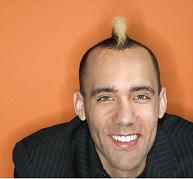The Great Leveller
Posted by spritzophrenia on July 8, 2010
From the website run by his wife:
He was only 42. Only the most hard-hearted would sneer at the hope of another life. David, I miss you and I love you. You were my friend, my schoolmate from age 10, a deep thinker and good guy. |

|
===
Strangely, I was thinking about the fear of death the other day. The fear of death has never been a biggie for me. My friend Nathan cited it as the key thing that made him want to become a christian. He was regularly afraid of death as a teenager. These days Nathan is still a great guy, but is now an atheist, as I understand him.
I was nearly 41 when I first felt the fear of death, just a couple of weeks ago. I wasn’t doing much, just walking up my path. Oh, I’d been afraid of dying before. A particularly harrowing moment rock climbing, or on top of a mountain in a storm. Yeah, I was scared of dying. But I wasn’t scared of being dead. This time it was actually experiencing being dead which scared me. How weird that it should come upon me when I was doing nothing.
I think of the poignant moment in Blade Runner, when the android Roy states it is his “Time To Die”.
At university, a member of the atheist club suggested that as we have no fear contemplating our non-existence before birth, so it makes sense to have the same lack of fear contemplating our non-existence post death. This has stuck with me and makes a lot of sense.
I recently found out this argument can be traced all the way back to Epicurus, a favourite philosopher of mine. Apparently there are good arguments against it too, but I don’t know what they are.
Either way, death is the great leveller. It has a way of making us stop and reflect, and this is a good thing.
I hope to see you again, Dave.
20 Responses to “The Great Leveller”
Sorry, the comment form is closed at this time.

Iain said
I’d be lying if I said that, on some level, I didn’t fear death.
However, I actually would say that the emotion that I have with respect to death is hate.
I know that death leads to possibility for other life. Evolution wouldn’t be possible without death. When a tree falls in a forest (such a majestic thing is an old tree) it inevitably grows moss, small plants, and then feeds the continuing life of the forest and biosphere around it.
But I hate death. Human death? Sentient death, perhaps. The tragic, senseless loss of a beautiful, special, and conscious creature. The loss of their ability to partake in love, joy, and relationships to those around them.
I sorely hope that science helps us in this way. I think that ALL governments on earth should place life-extension technology at the very top of their concerns and budgets. It won’t help me. I won’t live all that much longer, although I’m bound to get a decade or two more than I deserve out of medical advances in the future.
This fable expresses why I think all humans should hate death: http://www.nickbostrom.com/fable/dragon.html
And here are some glimpses of hope:
spritzophrenia said
As always Iain, a considered and interesting reply. 🙂
That life-extension stuff is interesting. I have a feeling it will only be the rich who will benefit from it. And you’re right, in our lifetime you and I aren’t likely to benefit much from it, early tech *might* be coming in but it will be too late for us by then.
I’ve read a few SF books with those ideas, and plan to incorporate them in mine if I ever finish it.
On hating death, I have a love-hate thing with it. When I was christian, I believed that death should be viewed as an enemy, but it’s also possible to see it as “part of life”. So I’m happy to leave it as a paradox.
NB: I’ve been reading some old-earth creationists recently who are adamant that there was pain and death (at least for animals) before the fall. Which is something I always thought too. http://www.answersincreation.org/
Iain said
Yes, if you catch me on a good day then my hatred of death can look something closer to contented acceptance of its natural side, too.
I’d make a terrible buddhist, far too many attachments 😉
spritzophrenia said
Me too! Is one of the reasons I find Buddhism problematic. I LIKE my attachments 😉
SugarPop said
I have read this a couple of times now, and even on third reading I still hold that it is a brilliant piece. I’m so sorry that you’ve lost a friend, and his family has lost a son, brother, husband and father.
I recently lost my father. While I miss him, I consider him to now be “free”, and of that I am just a tiny bit jealous. I still *feel* him around me – whether that’s my sentimentality or whatever doesn’t matter to me. As an enthusiastic epicure, I seek out and enjoy pleasurable experiences, and the sensation of perceiving that my Dad is near (and still hearing his voice on his mobile phone answering service!) are simple pleasures to me, irrespective of what I might think or believe about death itself.
Mari said
My condolences for your loss, Jonathan. You are right to point out that death “has a way of making us stop and reflect.” My aunt died today. She was my Mother’s younger sister, the middle sister of three, and like a mother to me as an aunt without a daughter of her own might be. Sweet memories are a comfort for me as I hope they are for you, too.
spritzophrenia said
I’m so sorry to hear that Mari, thanks for stopping by and taking the time to comment. *hugs*
Romy Shiller said
Jon – I’m sending you hugs across the miles.You will see Dave again.
spritzophrenia said
Thanks Romy
Anne said
I’m sorry for the loss of your friend, Jonathan. It sounds like he made a difference in others’ lives. I’m glad to see what he looked like and know about him. Death is the biggest event of our lives, so it makes sense that we spend time thinking about what it means. I find that apart from any philosophy or belief system I have, there is an innate feeling that I “know” certain people from beyond this life… and therefore, that I will know them again after this life.
spritzophrenia said
Thanks Anne. Interesting idea about death being the biggest event in our lives. Maybe only rivalled by birth?
Iain said
I think maybe it is bigger than birth, for sure. Let me explain why.
When I think about issues like birth, the option of abortion, and pregnancy in general, my thoughts always swirl around the potential of germ cells to become people. This is only a theoretical option of course, many of my own germ cells (if not most) will not have the pleasure of probabilistically meeting their other chromosomal halves and then, due to the odds of that meeting also, to become a person. The notion of my cells becoming a particular person is a frail one, staring down the barrel of quite a considerable line of long odds. It gets even weirder when you consider the recent scientific work of turning ordinary cells, skin cells, into pluripotent stem cells. These, too, could also become germ cells and thus people. This means that every day when I shed skin, I shed tens of thousands of potential unique individuals (or millions, depending on the fact you believe).
But death is a loss, and a certain loss. Once a person has come into this world, the die is cast. The person exists. They have their fears and their foibles. They have their passions. They love, they hate, they relate. Unlike birth, there is only one death awaiting each person and it is their own. There are no long odds.
Birth, like any growth, can take many ordered forms. Death, like entropy, leads only to the one state of maximum chaos.
spritzophrenia said
Iain, that’s a great piece of writing right there, and you make your point well. One day I’d like to quote this in my own writing 🙂
Iain said
Haha you would do me a great honour 🙂 Thanks.
Romy Shiller said
I’m certain that you’re trying to be helpful, Iain, but germ cells and regular cells have nothing to do with birth. Potential or not.
Iain said
I don’t follow you, Romy.
Here is the article showing one example of turning somatic cells into pluripotent stem cells http://www.sciencemag.org/cgi/content/abstract/318/5858/1917
That’s how I related those types of cells into the discussion.
And, of course, as for germ cells:
“the sexual reproductive cell at any stage from the primordial cell to the mature gamete” (Dictionary.com)
Gametes are the normative way to produce the birth of a child, which is how I related them into it.
Perhaps you would like to elaborate.
gardenbuddha said
Some may be able to intellectualise their attachment to life away, but I can’t. I am very attached to life and can’t handle the idea of never feeling the sun on my face again or seeing the blue sky and green trees. Strangely, it’s letting go of nature, not people, that bothers me.
spritzophrenia said
I want to say it’s existence itself I’d miss, but that is probably incoherent. It’s *through* nature that we experience existence. You’ve made me think, which I always appreciate. 🙂
gardenbuddha said
To be honest, I can’t bear the thought of me not existing.
My Avatar Spiritual Experience « Spritzophrenia said
[…] The Great Leveller […]